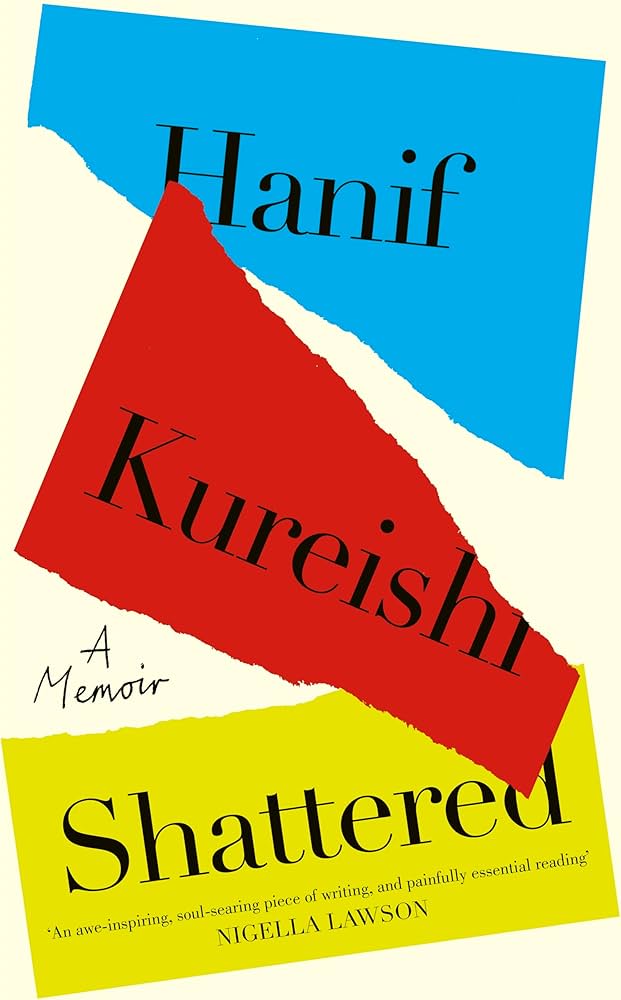The Independent's journalism is supported by our readers. When you purchase through links on our site, we may earn commission.
A letter to my friend Hanif Kureishi after the terrible accident that changed his life forever
As someone who has known the author of ‘My Beautiful Laundrette’ and ‘The Buddha of Suburbia’ for over 40 years, Robert McCrum reflects on how his friend’s life was changed irrevocably by a fall in Rome two years ago. The accident left Kureishi paralysed – yet in many ways, it has allowed the writer to become his true self


Dear Hanif,
You and I have been friends and sparring partners in the beaten way of the London book, theatre and media world for about half a lifetime – more than 40 years. At Faber’s in the 1980s, I published quite a bit of your early work (notably The Rainbow Sign, My Beautiful Laundrette, The Buddha of Suburbia and The Black Album).
So when I heard, just after Christmas two years ago, that you’d fallen badly in Rome and been taken into intensive care with a broken neck, severe paralysis, and had almost died (there were many rumours: none of the stories about you were exactly the same), I was stunned and distressed.
When, finally, I was able to visit you in the Stanmore rehab centre on your return to the UK, you were already a veteran of many months of neuro-physiotherapy, acclimatising to a weird new world of disability.
Possibly, I was more concerned on your behalf than some of your circle. As someone who is a long-term survivor of a stroke (in 1995), I know all about the brain injuries that induce paralysis, and the struggles, inner and outer, involved in getting back to health. I also understood, in my own way, the dreadful severity of your plight as a tetraplegic – in your words, “like a Beckett character”. At any age, the reminder that we live in our bodies can be a personal apocalypse, and a shock that many don’t get over.
But then an amazing thing happened, something wholly in character: in extremis, I have seen, and marvelled at, the way in which, with steady determination, you have become even more yourself. You were always committed to your life and work as a writer, drawing on yourself as the essential source. Now you were writing with more urgency than ever, reporting from no man’s land with a kind of perverse joie de vivre.
“I cannot scratch my nose or feed myself ... All I can do is speak, but I can also listen.” From this, you concluded that “becoming paralysed ... is a great way to meet new people.” Ironically, you insist that paralysis is “good for creativity”, and makes you see “how dull my old life was”.
You began to cope by “writing through dictation”, assisted by your boys Sachin, Carlo and Kier, initially in a sequence of essays, a masterpiece of British stoicism, published over the last 18 months on Substack. You’ve now edited this extraordinary first draft of your life-altering crisis into Shattered, an exceptional volume (as original in its way as another memoir of acute neuroparalysis, Jean-Dominique Bauby’s stroke classic The Diving Bell and the Butterfly).

For me, this unique and unputdownable memoir is as profound and affecting as Salman Rushdie’s Knife. It’s striking how you and he, who share so much common experience of literary London, have found yourselves writing your way out of distress into a reconciliation with your respective fates.
Based on this raw Substack material, Shattered offers the simple clarity that your writing has always had: “On Boxing Day, in Rome, after taking a comfortable walk to the Piazza del Popolo ... I had a fall.” Actually, you had just taken a sip of beer while watching Mo Salah score against Aston Villa when you “began to feel dizzy”.
“Fall” is an Anglo-Saxon word that’s as old as the hills, rooted deep in our past, and edged with fear. Just a tumble to a child, or a pratfall to a clown, but experience has taught me that the failure of the human frame in a fall can be a deep humiliation to one’s sense of self.
In these moments – which occur in a kind of slow motion – we find ourselves confronting a private drama, outside-in. You describe how, in that instant, you believed you were dying, you felt “divorced from myself”. Paradoxically, your literary voice – always so irreverent, candid, and unfettered – becomes more dominant.
Your innate insouciance belies much suffering. In the excruciating early weeks after this disaster, you say you became prey to “a racing mind” and the torments of hospital pain, suffering a Heimlich manoeuvre, an “anaesthetic in the penis”, and tubes up your nose and down your throat.

For you, everything has always been copy – and never mind the cost – as readers of Intimacy (an account of your breakup with the mother of your children) will remember. In Rome two years ago, after this astonishing catastrophe, you seem to have been invigorated by the challenge to report something new: “People say when you’re about to die your life passes before your eyes, but for me, it wasn’t the past but the future that I thought about – everything I was being robbed of, all the things I wanted to do.”
This fall provoked a rare, and inspiring, defiance. You have always been fiercely self-assertive as an artist: unsentimental, argumentative, and contrary, with a sharp eye for human comedy. Like Montaigne – a comparison that will make you snort with disbelief – you’ve always known that “we laugh and cry for the same thing”.
Today, you juxtapose laughter and tears to the limit. Your experience of intensive care and near-death has delivered some wonderful new copy, like room service, to your hospital bedside. If this was to be your future, it was one you could embrace with a yelp of recognition. Hanif had suffered a severe insult to his sentient self, but “Hanif Kureishi” was in robust good spirits, in the triumph of mind over matter.
Perhaps this is part of the human condition. In his essay Darwin’s Worms, the writer and psychoanalyst Adam Phillips describes our capacity to survive as “a banal and remarkable fact” of life. He concludes: “The sheer stubbornness of the so-called will to live is often a cause for celebration.”

I think you have a version of that instinct: the gift, special to the born artist, of being at home in the midst of catharsis. Your writing, which now involves the whole family, including your beloved Isabella d’Amico, whom I have come to know and admire during my visits to your newly converted home in Shepherd’s Bush. “A few days ago,” you wrote, “a bomb went off in my life, but this bomb has also shattered the lives of those around me. My partner, my children, my friends.”
I have observed how your brave and resolute new wife plays a role in your modus operandi as a helpless patient, tactfully backing up your carers while contributing from the sidelines. I think that when you write that “all artists are collaborationists”, you are acknowledging the way in which Shattered, with its unique authorship, has become a life-saver. For the reader, this compounds the intensity of its witness.
Nevertheless, like an anatomist of intimate relations, you also note that your calamity has “made everyone a little crazy ... There is guilt and rage, and people resent their dependence on one another ... My accident was a physical tragedy, but the emotional outcomes for all of us are going to be significant.”

That, in turn, becomes an unsentimental preamble to a fundamental truth: it’s all about you. “I’d like to add,” you tell us, “that I really enjoy writing these dispatches from my bed. At least I hadn’t lost the one thing that was valuable to me – my ability to express myself.”
Mercifully, this blessing is never self-pitying. Far from it. The “Hanif” revealed in these pages is now the butt of some tremendous self-deprecating jokes. Like an irrepressible Monty Python character, you meet your adversity halfway, full of good cheer, and revel in reporting what it means to be more than half a vegetable. Merrily, you report that “The only good thing to be said for paralysis is that you don’t have to move to s*** and piss.”
As long as I’ve known you from those far-off Faber days, behind your witty and ebullient presence, you’re quite a shy and, in some ways, vulnerable man. You have always been fundamentally self-aware; what you characterise, ironically, as “something of a realist”. This recognition became your first decisive step towards becoming that comic writer redux: in future, nothing would be too trivial as a potential joking matter.
So when a nurse gives you an enema, you spontaneously report that it’s been a few years since “a medical digit” has penetrated your backside. You go on, in a tone that’s the vintage Kureishi I’ve known since the heady days of My Beautiful Laundrette (1984): “As the nurse flipped me over, she asked, ‘How long did it take you to write Midnight’s Children?’ I replied, ‘If I had indeed written that, don’t you think I would have gone private?’”
Yours, with every prayer for more medical miracles,
Robert
‘Shattered’ by Hanif Kureishi will be published in the UK by Hamish Hamilton on 31 October





Join our commenting forum
Join thought-provoking conversations, follow other Independent readers and see their replies
Comments